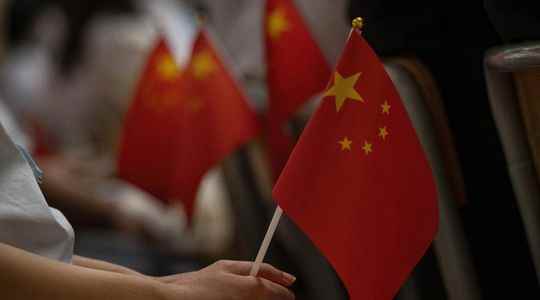China already had its Great Wall, more than 21,000 kilometers long, built from the 5th century BC to protect it from northern barbarian invasions. It is now building giant walls against, this time, epidemics from abroad, according to the official discourse. The longest is still under construction along the Burmese border. A 3 meter high barrier equipped with a surveillance camera and covered with barbed wire and metal bars. When it is completed, in a year, the wall should extend over 2,500 km and block the entire border area.
Beijing speaks of a “security wall” supposed to fight against Covid-19 and further isolate China, which believes that most new contaminations come from travelers from abroad. But work began as early as 2019, before the epidemic, as shown this video from a chinese youtuber from september 2020 and which shows a wall already well advanced and equipped with surveillance systems. The virus is therefore not the only reason for this wall: it must also serve to better control this porous border through which passes part of the traffic in drugs, precious stones and jade from the “golden triangle” ( on the borders of Burma, Laos and Thailand). Not to mention the Burmese refugees fleeing the fighting between the ruling junta and armed groups in the north in their country..
“Criminal networks, the triads, are very active in these regions, explains Carl Thayer, professor specializing in Asia at the University of Canberra. The presence of smugglers on both sides and the corruption of local officials pose a real problem for the Beijing government.
If the wall is to prevent foreigners from entering, it must also prevent Chinese from leaving. Poverty in the southern provinces of China is indeed pushing tens of thousands of Chinese to work on the other side of the border where cities have sprouted like mushrooms in recent years. There are clandestine casinos, wild animal markets, prostitution and all kinds of traffic controlled by Chinese mafia groups. Like the 14K triad, which works hand in hand with the independence guerrillas in northern Burma.
“Little China”
Wa State in northern Burma is a de facto independent region with its own political and administrative system. It covers an area of 35,000 km², roughly the size of the Netherlands, where some 700,000 people live, including many Chinese protected by the United Wa State Army (UWSA), more than 20,000 men converted to the drug traffic.
In this state nicknamed “little China”, Mandarin is the lingua franca and residents use Chinese telecommunications networks and financial services. According to the Chinese Ministry of Public Security, more than 125 billion euros are injected into these underground casinos in Burma or Cambodia by Chinese gamblers each year.
In total, more than 140,000 Chinese nationals are settled in northern Burma and regularly travel back and forth with China. They are mainly from poor cities in the provinces of Fujian, Hunan, or Guangxi. They are the trimmers of these clandestine casinos where they work as cooks, waiters or manage small businesses.
Motion and sound sensors
The walls should help regulate population flows and prevent other Chinese from joining the ranks of these migrants, many of whom are involved in illegal activities in China.. Chinese local media reported that the government has started mobilizing self-defense patrols along the border, recruiting thousands of people assisted by dogs and drones to monitor the area in support of border guards.
The official newspaper “Yunnan Daily” also reported that a prefecture in the west of the province, Dehong, has hired nearly 22,000 people to patrol the region and set up 136 checkpoints along the border. with the Kachin State in Burma.
“The border is equipped with movement and sound sensors and an artificial intelligence system to filter movements, explains one of these militiamen. Once the sensors are triggered, the high-definition infrared cameras automatically turn towards the source to allow control centers to carry out further checks. If illegal activity is discovered, the Self-Defense Patrol Team, local police or armed police will be notified to initiate an investigation.”
This principle of maximum sealing is also being applied with the Vietnamese border where another wall, even higher, is under construction.
